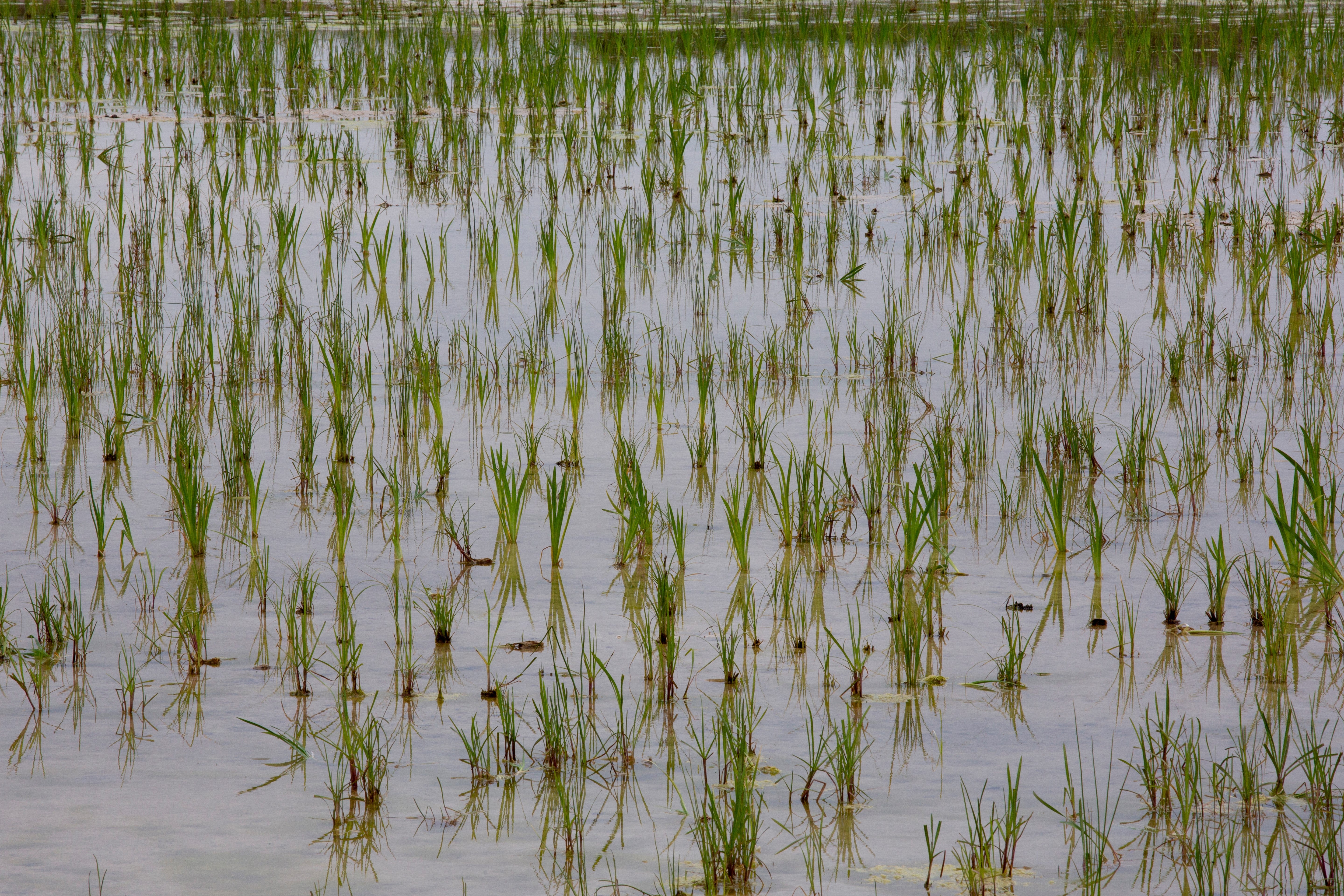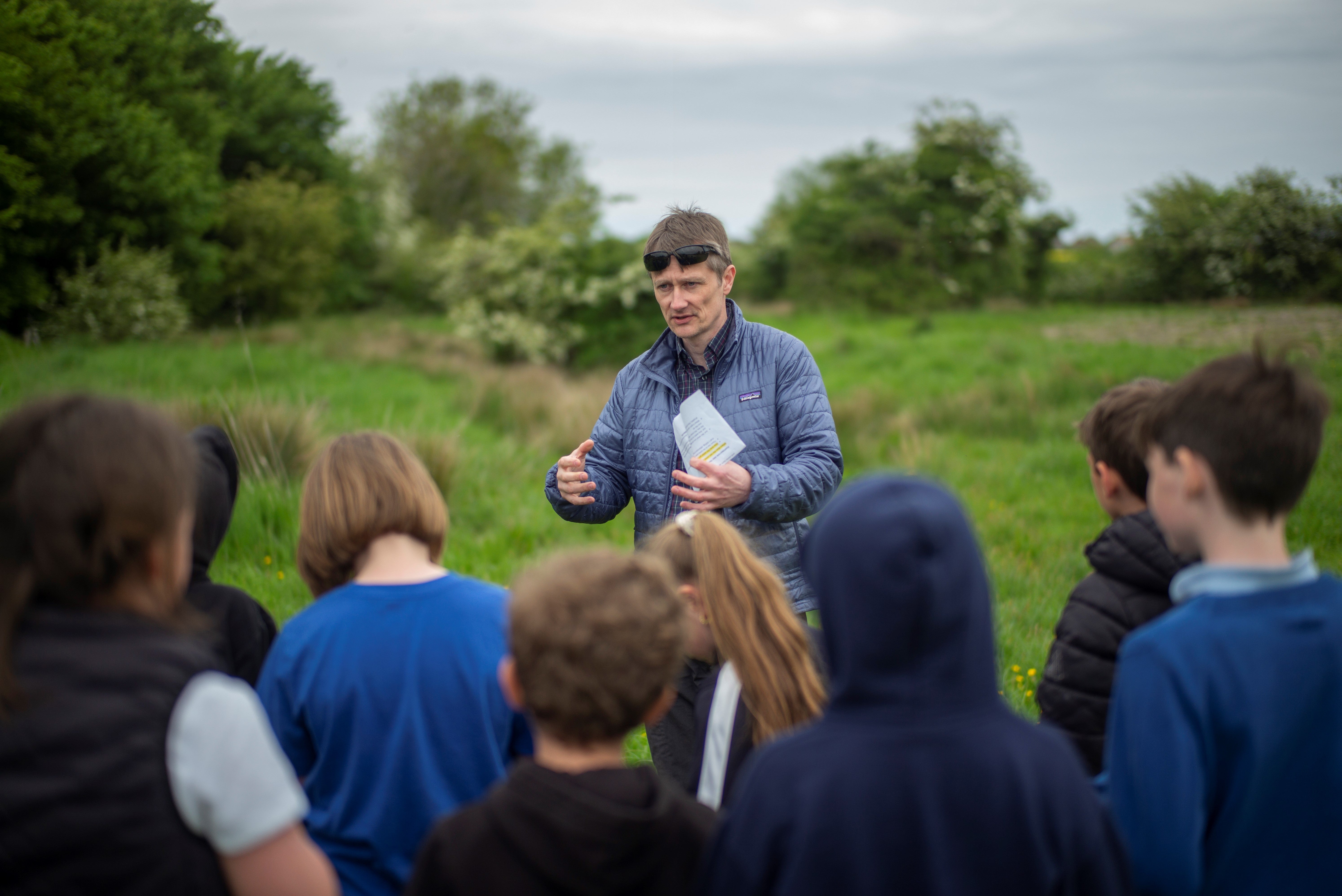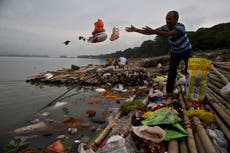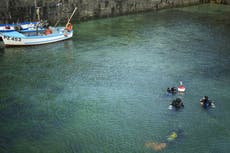Over half of Britons waste millions of litres of water every day by doing this one thing wrong
A study has revealed that changing this one thing could save £72 per household and reduce Britain’s water scarcity

Brits are unwittingly wasting millions of litres of water every day – despite six in 10 being keen to conserve it.
And there’s one key thing we’re all doing wrong: rinsing dishes before putting them in the washing machine.
Researchers, who carried out a detailed study, found that due to rising water bills and the cost of living crisis, over half (55%) UK residents are making changes to save water.
However, many also admit to small mistakes that could be racking up the costs.
One in five admit say they leave the tap running while they’re washing the dishes and two in five (20%) confess to regularly rinsing their dishes before putting them in the dishwasher.
One in 10 (9%) rinse dishes every time they load the machine and one third (33%) of 18-34s admit to doing this regularly, compared to just 12% of over 55s.
Making small changes is not only financially beneficial, but it also helps the environment.
The study was carried out as part of Finish’s partnership with the World Wide Fund for Nature (WWF) and its ongoing ‘Journey of Water’ campaign, to highlight a new wetland which has been constructed in Norfolk – an area facing a strain on water resources due to pollution and a drier climate.
“Making small changes to water use at home can make a difference to the environment,” said Conor Linstead, freshwater specialist at WWF.
“Fresh water is a crucial part of the fight for our world, because healthy river, lake and wetland habitats play a critical role in reversing species decline.
“Many rivers in the UK are at risk due to agriculture and sewage pollution and excessive water use, and our partnership with Finish seeks to help protect and restore some of these spaces.
“All parts of society – the government, businesses, and the public – must come together and act now to bring the UK’s wild isles back to life."
The Finish study also revealed up to 19L of water per week can be saved by skipping the rinse before loading a dishwasher, and an average of 130L can be saved per week by using a dishwasher over washing by hand.
The survey of 2,000 adults also revealed other interesting water wastage uses.
For instance, over half (58%) of Brits flush the toilet more than once after using it, and three-quarters (77%) often leave the tap running when they brush their teeth – with one in five (19%) doing so every time.
Top tactics to cut down on costs involve swapping a bath for a shower (62%), using the washing machine less (58%), collecting rainwater to water plants (41%), and even skipping showering / bathing altogether (21%).
Results from the survey also show that the average UK adult can save on average £72 a year by making changes at home and cutting back on their water usage at home.
And, despite a common misconception, using a dishwasher over washing up by hand can also save on average 130L of water per week, and by skipping the pre-rinse, households can save up to a whopping 19L of water per week.
Finish and WWF aims to raise awareness of water scarcity issues and educate the nation on where fresh water comes from, and the important role it plays in the wider ecosystem.
Freshwater habitats, including lakes, rivers, and wetlands, are vital for UK nature, as they provide homes for many precious wild species.
Around 15% of water bodies in England have been impacted by changes to natural flow and levels of water.
In many cases, this is due to high levels of water being abstracted.
Wasting water at home can contribute to lower flows in some stretches of rivers and adds to the burden on freshwater wildlife, especially in times of drought.
Finish and WWF has supported Norfolk Rivers Trust to construct the new wetland in Norfolk, as part of a mission to replenish freshwater in the UK.

To help educate school children, the organisations also hosted 44 children from Langham Primary School at the newly-built wetland to showcase how the wetland will improve water quality.
“It’s great to see many people are already making changes to reduce their water consumption, although together we could all be doing more,” Cigdem Kurtulus, marketing director at Reckitt.
“There’s often a common misconception to rinse before loading the dishwasher, when in fact skipping the rinse can save up to on average 19 litres of water and using a dishwasher over washing up by hand can save on average 130L of water per household a week.
“We really want to help educate people on how making small changes at home, can make a big difference and help protect the UK’s precious freshwater environments.
We are already seeing the positive difference this is making following the newly constructed wetland.”
Finish is also providing educational resources for free including an e-book for kids, written by Catherine Coe, dubbed ‘Water Heroes: The Journey of Water’.
The story follows three children who embark on an adventure from source to tap; learning about different environments, why freshwater is so precious and how to save water at home along the way.
Additionally, the organisation’s website has tips and tricks, as well as a quiz where you can check how switched-on you are about water saving.
Join our commenting forum
Join thought-provoking conversations, follow other Independent readers and see their replies
Comments


Bookmark popover
Removed from bookmarks